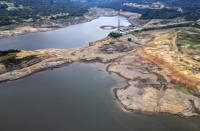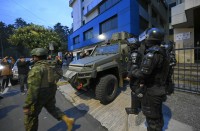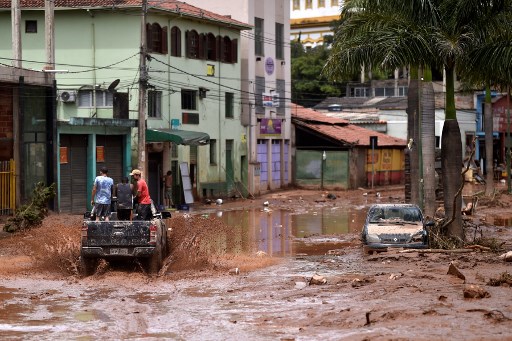
SABARÁ, Brazil (AFP) – Valeria PACHECO
Elaine Almeida looked at her aunt’s ruined house in Sabará, a town in a southeastern region of Brazil where at least 45 people have died in floods that followed record rainfall.
“The water rose more than two meters, she lost everything,” Almeida said.
She and her aunt tried pushing the door of the house open, but the mud inside was so deep they had to give up.
In Sabará, a town of some 130,000 residents on the edge of Belo Horizonte, the capital of the state of Minas Gerais, homes built on the banks of the Rio das Velhas river were completely submerged by mud and water, their roofs either ripped off by the surging current or caved in under the weight of the mud.
The football pitch in front of the aunt’s house has completely disappeared under a thick brown layer of mud.
“The water rose very quickly and she couldn’t leave by the front door, she had to climb over three walls to escape,” said Elaine, 36, who is putting her aunt up while she looks for a new place to live.
Elaine’s own house was spared the worst because she lives in a hillier part of Sabará.
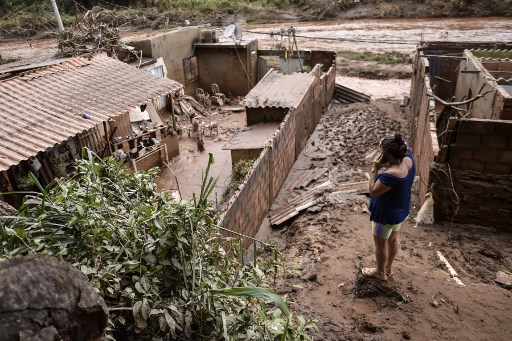
Like her aunt, 15,000 people had to leave their homes across Minas Gerais, where more than 100 towns have been put on a state of alert.
Most of those who died in the wake of the violent storms that swept the southeast of Brazil perished in landslides or when their homes collapsed in the floods and unprecedented rains.
The authorities reported 44 dead late Sunday but a 45th fatality was reported Monday and the toll is expected to rise further, with another 18 people still listed as missing.
‘Critical situation’
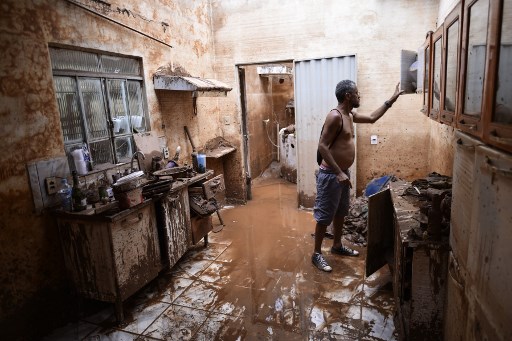
Gilvan Jesus Amorim, 43, only just escaped the worst. “I didn’t managed to save anything except my own life,” he said, looking crushed.
“There’s nothing to salvage, I’ll have to throw everything away,” said Amorim, who has been living for three days with his wife and daughter at a neighbor’s house, with no running water or electricity.
“When it started raining, I told my wife we had to sleep upstairs and we took a mattress up there. But a few hours later the water started to rise really fast and we had to leave,” he said.
His street is strewn with household items all coated in mud: refrigerators, remote controls, mattresses, scattered clothes.
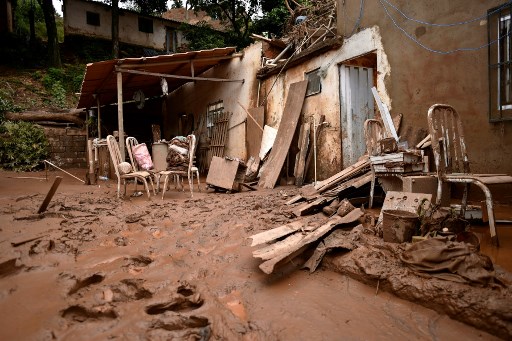
“It’s one of the worst floods I’ve ever seen, the situation is critical,” said Lucimara Soares, a 42-year-old cleaner.
“Lots of my friends have lost everything, they have nothing left,” she said.
Firefighters and the Red Cross have launched a campaign to gather donations to help the flood victims.
Most of the buildings that were destroyed had been built without permits and in areas considered to be at risk. The National Meteorological Institute said the rainfall was the heaviest ever recorded in Minas Gerais since records began 110 years ago.
© Agence France-Presse

